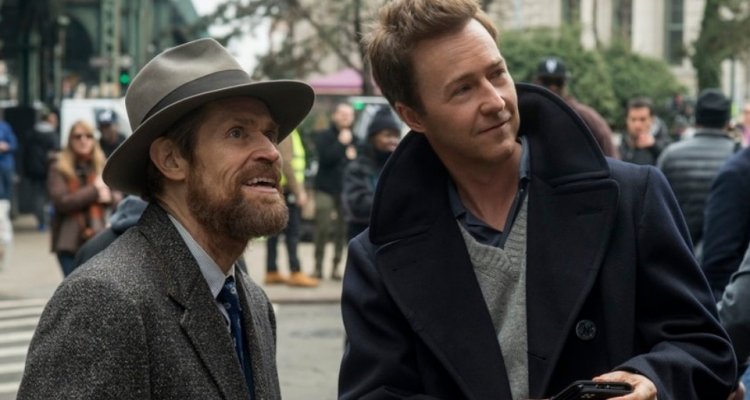Welcome to the latest episode of The Fourth Wall – an interview podcast where I attempt to break down the fourth wall of the film industry, getting a behind the scenes look through my conversations with filmmakers, actors/actresses, and other industry professionals. “Motherless Brooklyn” marks a twenty-year journey for writer, director, producer, and star Edward Norton and Norton joins me to discuss the film.
Norton is truly one of the great talents of our generation, with a diverse body of work spanning films such as “Primal Fear” and “American History X,” “Fight Club,” “The Incredible Hulk,” and “Birdman” just to name several.
READ MORE: Edward Norton: The Essential Performances
Over the course of the episode, it became clear that not only is Norton a massive fan of cinema, more specifically film noir, but he’s riveted by projects that have something to say about current social issues. He’s a firm believer in Joseph Campbell‘s concept of transparency and that the most potent art is that which reflects our own image back at us. For all the “Chinatown” callbacks and reverence for classic film noir, it was precisely this concept that allowed Norton to get to the heart of his take on “Motherless Brooklyn.”
“I love movies like ‘Reds‘ and ‘Do the Right Thing‘ things that are transparent but also get at what’s the national character, what are the things that we’re lying to ourselves about, not dealing with, not confronting, what’s all of our’s story,” said Norton. “I was very inspired by people like Warren Beatty. He told me people told him no one wants to see a three-hour movie about American socialists with documentary footage, and he was like ‘well I do, and I think other people will get that this is about the alternative American story and that this is a part of who we were too and that there was a lot of nobility in it.'”
He continued, “‘Do the Right Thing’ as well. It’s compassionate, it gives you the point of view of Danny Aiello and John Turturro but, at the end, it says what do you do when you have people who feel marginalized and who are going to have an impulse towards a violent reaction to their own oppression, and he [Spike Lee] gives you a Martin Luther King Jr. quote, and he gives a Malcolm X quote and he’s like we gotta debate, we gotta look at this shit. That’s why that movie was such a hand grenade. Where I can, I’ve always wanted to shoot for things like that, they’re not easy to find, but I’ve been lucky and gotten to get inside a fair number of them, and I wanted to try to make one of them.”
The underlying motifs of gentrification and corruption Norton put forth in his most recent film certainly affirm this belief and approach, and his boldness is undoubtedly something that should be applauded. During our conversation, we go deep into those films that excite and inspire him along with how growing up the grandson of a community builder helped shape his approach to “Motherless Brooklyn” and why movies like “The Big Sleep” and “Chinatown” were so influential. “Motherless Brooklyn” hits theaters this Friday, November 1st.
As always, The Fourth Wall is part of The Playlist Podcast Network—which includes The Discourse, Be Reel, and more –and can be heard on iTunes, AnchorFM, Soundcloud, Stitcher, and now on Spotify. To listen on this page, you can stream the podcast via the AnchorFM embed below or up top. Follow us on iTunes, and you’ll get this podcast as well as our other shows regularly. Be sure to subscribe, and drop us a comment or a rating as we do appreciate it. Thanks for listening.

